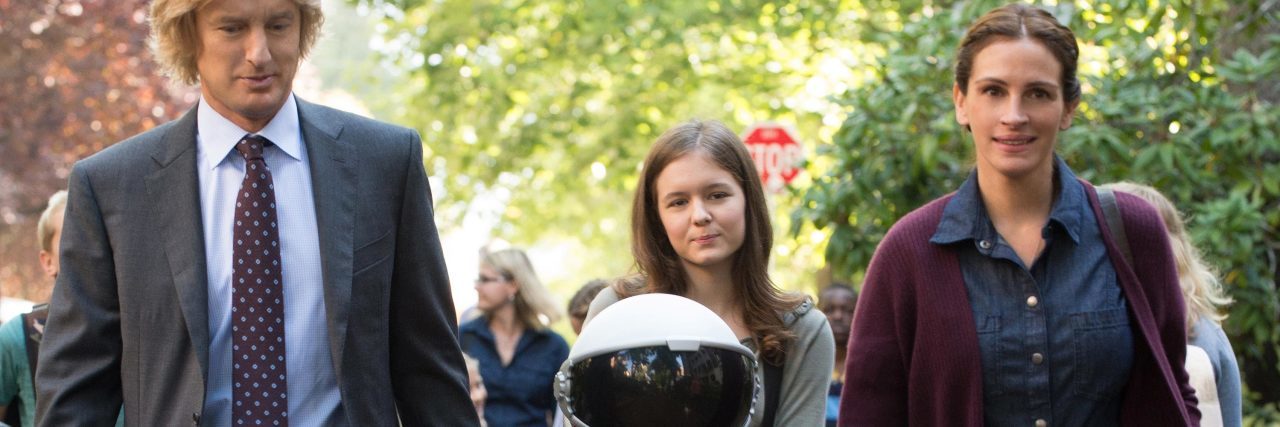What I Believe 'Wonder' Missed as Someone With a Craniofacial Disorder
I did it. I saw the movie “Wonder.” As a person with Goldenhar syndrome, I have a personal interest in seeing a movie in which the main character has Treacher Collins syndrome — a craniofacial disorder similar to mine — that is not based on seeking inspiration but finding validation. In many scenes I did find validation in common, though dramatized experiences. I could talk about what the movie is to me and maybe I will — another time. This time I want to talk about how the movie did not validate me as a woman with a facial difference.
“Wonder” portrays a boy with a facial difference. Certainly he has his struggles, but he is also an inspiration. In many ways the struggle and experience is similar for women or girls with a facial difference. In other ways it is different. Just turn on the television or look at a print ad for cosmetics. Watch a beauty pageant. Women and girls are told what is beautiful and how to achieve it constantly — as if it was their responsibility and obligation to achieve the ideal to show their worth. As a woman with a facial difference, this can leave me out in the cold and at a loss.
I would have loved it if “Wonder” had portrayed a girl with a facial difference — especially using the same age range. A lot of the events wouldn’t have had to change, but the perspective would have been transformed to speak about critical issues regarding perceptions of beauty and how that is tied to self-worth for women and girls.
At Auggie’s age in the movie, girls are making bonds and forming cliques. They are gravitating towards those who are similar and interested in the same things. To some extent this is the same for boys. Boys though, in my view, form bonds around “typical” boy interests such as video games or sports. However, because of the media emphasis on makeup or clothes aimed at women, girls are sometimes more likely, at least at first, to form bonds over interest in clothes or makeup often aimed at de-emphasizing or “covering up” imperfections. As a girl with a facial difference, I was the same way. But short of professional make up tricks that I as a young girl did not know, make up wasn’t going to serve its “purpose” of covering up my “imperfections” the way it would have for my peers. The movie could have addressed this, had Auggie been a girl. True, regardless he was bullied for his appearance, but he had more recourse to find an easy “in” through talents — like sports or academics — that would gain him acceptance from his peers as a boy.
Given this, the portrayal of Auggie’s relationship with his parents could have been different had the character been a girl. To be sure, boy or girl, raising a child with a facial difference carries with it added concerns and needs related to developing self-esteem and social skills. But in raising a girl, parents have an added dimension in guiding her to define her sense of beauty to include her facial difference. The parents, rather than “covering it up” or communicating cryptic denial through not addressing it directly, and redirecting focus on things that don’t include her appearance, need to address it in perspective to validate her differences and her feelings surrounding her appearance. Once they do that, they can develop her sense of beauty and her sense of competence beyond her appearance — not before.
Don’t misunderstand me, I loved “Wonder” and plan to purchase the DVD once it is out to add to my collection of movies portraying people with disabilities. However, I hope one day to see a movie I can relate to fully. I want to see a movie about a woman or a girl living her life, learning to embrace her facial difference and finding validation in her beauty.
We want to hear your story. Become a Mighty contributor here.

